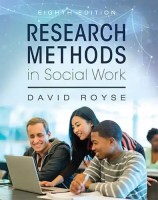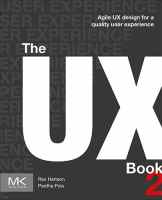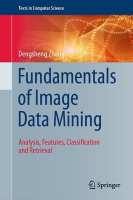2020 Textbook award-winning insight (Part 1): Purpose, timeline, and results
 We recently reached out to winners of the 2020 TAA Textbook Awards and asked them to answer some questions about why they made the decision to write their textbook, strategies they used for successful writing, advice on contracts, editing, marketing, co-authoring, and more. We will be sharing their answers in a series of posts over the next few weeks.
We recently reached out to winners of the 2020 TAA Textbook Awards and asked them to answer some questions about why they made the decision to write their textbook, strategies they used for successful writing, advice on contracts, editing, marketing, co-authoring, and more. We will be sharing their answers in a series of posts over the next few weeks.
This first installment of the five-part series focuses on why the authors decided to write their textbook, how long it took to complete the process, and the benefits and challenges of doing so.
Why did you decide to write a textbook?
 Talya Bauer, co-author of the 2020 Most Promising New Textbook Award winner, Human Resource Management: People, Data, and Analytics, 1e: “Helping students is the first step. We realized that students were not being exposed to important concepts related to technology, data, and analytics while learning HRM. We wanted to fix that and approached this book to meet this critical need for students today.”
Talya Bauer, co-author of the 2020 Most Promising New Textbook Award winner, Human Resource Management: People, Data, and Analytics, 1e: “Helping students is the first step. We realized that students were not being exposed to important concepts related to technology, data, and analytics while learning HRM. We wanted to fix that and approached this book to meet this critical need for students today.”
Amy E. Bonomi, co-author of the 2020 Most Promising New Textbook Award winner, Women Leading Change in Academia: Breaking the Glass Ceiling, Cliff and Slipper, 1e: “Need to raise awareness about challenges and opportunities women leaders face in academia.”
David Caughlin, co-author of the 2020 Most Promising New Textbook Award winner, Human Resource Management: People, Data, and Analytics, 1e: “To provide a contemporary view of human resource management fundamentals, with spotlights on ethics, data analytics, and technology.”
 David Clark, co-author of the 2020 Textbook Excellence Award winner, Molecular Biology, 3e: “Most of my career was spent running a research lab plus teaching. When funding started getting tight, I was looking for alternative options. A friend suggested joining him in an introductory book (not the one that won the prize). I did, I enjoyed it and carried on to write a couple of other more advanced textbooks.”
David Clark, co-author of the 2020 Textbook Excellence Award winner, Molecular Biology, 3e: “Most of my career was spent running a research lab plus teaching. When funding started getting tight, I was looking for alternative options. A friend suggested joining him in an introductory book (not the one that won the prize). I did, I enjoyed it and carried on to write a couple of other more advanced textbooks.”
Braja Das, co-author of the 2020 McGuffey Longevity Award winner, Principles of Foundation Engineering, 9e: “There was no good textbook in the field combining theory, practice, with a lot of example problems.”
 David Hall, co-author of the 2020 Textbook Excellence Award winner, Oklahoma Studies Weekly – Our State, 7th Volume, 2e: “I have been assisting with product development for Studies Weekly for over 12 years. I love social studies and I love my job. Creating publications for elementary school students helps me share my love for social studies and history in a way that is hopefully exciting for kids so they can get a passion like I have for it.”
David Hall, co-author of the 2020 Textbook Excellence Award winner, Oklahoma Studies Weekly – Our State, 7th Volume, 2e: “I have been assisting with product development for Studies Weekly for over 12 years. I love social studies and I love my job. Creating publications for elementary school students helps me share my love for social studies and history in a way that is hopefully exciting for kids so they can get a passion like I have for it.”
Rex Hartson, co-author of the 2020 Textbook Excellence Award winner, The UX Book: Agile UX Design for a Quality User Experience, 2e: “I wanted to share the expertise that I took years to develop.”
Paul Insel, co-author of the 2020 McGuffey Longevity Award winner, Core Concepts in Health, 16e: “It was an extension of the papers I was writing on the psychological orientation of health and health behaviors.”
 Laura Levine, co-author of the 2020 Textbook Excellence Award winner, Child Development From Infancy to Adolescence: An Active Learning Approach, 2e: “I couldn’t find a textbook that gave me the active learning approach to child development that I wanted.”
Laura Levine, co-author of the 2020 Textbook Excellence Award winner, Child Development From Infancy to Adolescence: An Active Learning Approach, 2e: “I couldn’t find a textbook that gave me the active learning approach to child development that I wanted.”
Ming Li, co-author of the 2020 McGuffey Longevity Award winner, An Introduction to Kolmogorov Complexity and Its Applications, 4e: “Because that field needs a book.”
Guy Marriage, author of the 2020 Most Promising New Textbook Award winner, Tall: the Design and Construction of High-Rise Architecture, 1e: “Because the existing books on the market were not suitable for purpose.”
Joyce Munsch, co-author of the 2020 Textbook Excellence Award winner, Child Development From Infancy to Adolescence: An Active Learning Approach, 2e: “I knew that a good textbook was essential for students. No professor can cover everything that is important about a topic in the time available for class meetings, so students must be motivated to read the textbook on their own. I wanted to create an interesting, user-friendly text that would grab students’ interest and hold on to it.”
 Andrew Pomerantz, author of the 2020 Textbook Excellence Award winner, My Psychology, 2e: “To create a contemporary, accessible, engaging Introductory Psychology textbook that emphasizes the personal relevance of psychology.”
Andrew Pomerantz, author of the 2020 Textbook Excellence Award winner, My Psychology, 2e: “To create a contemporary, accessible, engaging Introductory Psychology textbook that emphasizes the personal relevance of psychology.”
Jamie Pope, co-author of the 2020 Textbook Excellence Award winner, Nutrition for a Changing World, 2e: “I was approached by an acquisitions editor about writing an introductory nutrition textbook aimed at students not majoring in nutrition – the type of students I teach at Vanderbilt. He was familiar with me through some of my other popular and academic press publications. He also said I had high ratings on ‘Rate My Professor’ (ha). After meeting with the editorial team about the approach and intent of the book, I agreed to take on the project.”
 Cheryl Poth, author of the 2020 Most Promising New Textbook Award winner, Innovation in Mixed Methods Research, 1e: “There was a gap in the field – mixed methods research is often presented as a linear process (although most would recognize in practice that is it iterative) and several years of hearing experiences of dilemmas I thought ‘I need to help.’”
Cheryl Poth, author of the 2020 Most Promising New Textbook Award winner, Innovation in Mixed Methods Research, 1e: “There was a gap in the field – mixed methods research is often presented as a linear process (although most would recognize in practice that is it iterative) and several years of hearing experiences of dilemmas I thought ‘I need to help.’”
David Royse, author of the 2020 McGuffey Longevity Award winner, Research Methods in Social Work, 8e: “Originally, to fill a gap in my discipline.”
 Michael Solomon, author of the 2020 McGuffey Longevity Award winner, Consumer Behavior: Buying, Having and Being, 13e: “There were some very significant changes going on in my field of study, and the textbooks at that time didn’t reflect these disruptions. I accepted the challenge to write the first textbook that reflected the current state of our discipline.”
Michael Solomon, author of the 2020 McGuffey Longevity Award winner, Consumer Behavior: Buying, Having and Being, 13e: “There were some very significant changes going on in my field of study, and the textbooks at that time didn’t reflect these disruptions. I accepted the challenge to write the first textbook that reflected the current state of our discipline.”
Michael Sullivan, author of the 2020 McGuffey Longevity Award winner, Precalculus, 11e: “I decided to write my first textbook because I found the materials I was currently using in the classroom inadequate. I felt I could do a better job.”
Dengsheng Zhang, author of the 2020 Most Promising New Textbook Award winner, Fundamentals of Image Data Mining, 1e: “To achieve a lifetime goal.”
How long did it take to complete the manuscript for your award-winning textbook?
Bauer: “Two years.”
Bonomi: “Nine months.”
Caughlin: “Approximately two years.”
Clark: “About 2-3 years for the first edition, as sole author. Revisions, with coauthors joining in, took about 18 months. This prize winner was the third edition.”
 Das: “Two years.”
Das: “Two years.”
Hall: “About a month.”
Hartson: “Three years.”
Insel: “Three years.”
Levine: “Two to three years.”
Li: “Ten years or more.”
 Marriage: “Took me two summers to write, and one summer for us to illustrate. The illustrations are a key part of success with students in today’s world.”
Marriage: “Took me two summers to write, and one summer for us to illustrate. The illustrations are a key part of success with students in today’s world.”
Munsch: “With my co-author, Laura Levine, we usually work about 15 to 18 months on a revision, although looking for new content is a constant and ongoing process.”
Pomerantz: “Several years.”
Pope: “We started the process in 2012 and the first edition was released in 2015. It soon became apparent that the scope of the project warranted a co-author so Steven Nizielski, PhD joined the team. We worked with Scientific American science writers to develop journalistic style chapters that integrated nutrition science into a story approach.”
 Poth: “Four years from start to finish but that included a maternity leave, the death of my father following a short illness, a sabbatical, and completing the 4th edition of the Qualitative text revisions with John Creswell.”
Poth: “Four years from start to finish but that included a maternity leave, the death of my father following a short illness, a sabbatical, and completing the 4th edition of the Qualitative text revisions with John Creswell.”
Royse: “15-18 months.”
Solomon: “The first edition took me about two years to complete.”
Sullivan: “I had been writing textbooks for about 10 years when I was approached by a publisher to write Precalculus 11e. It was one of four books in a series and the entire series took about four years to complete.”
Zhang: “Two years.”
What do you consider the greatest benefit of being a textbook author?
Bauer: “Communicating solid content to students to help them avoid non-evidence-based approaches.”
 Bonomi: “Making an impact in the world.”
Bonomi: “Making an impact in the world.”
Caughlin: “Making information readily available to introductory HR students that wasn’t previously included in most textbooks.”
Clark: “I learned a lot about the broader aspects of my area. Running a research program is very specialized and you get very narrow.”
Das: “A satisfaction knowing that it has helped students.”
Hall: “Seeing the finished product.”
 Hartson: “Knowing that lots of people out there will be able to use the skills and knowledge it conveys.”
Hartson: “Knowing that lots of people out there will be able to use the skills and knowledge it conveys.”
Insel: “Fun and profit.”
Levine: “Staying up on the research in the field and figuring out ways to translate the newest findings to students in a way to engage and stimulate their thinking.”
Li: “Spreading the knowledge and new research stem from writing.”
Marriage: “Now at last I have something that is useful for my students – and I hope also useful for other similar students around the world.”
 Munsch: “It feels great to get feedback from students and reviewers that indicate we have met our goals and that they are using and getting a lot from our texts.”
Munsch: “It feels great to get feedback from students and reviewers that indicate we have met our goals and that they are using and getting a lot from our texts.”
Pomerantz: “The privilege of playing a role in students’ learning process.”
Pope: “There are many benefits! I think that my knowledge and perspective in my field has been greatly increased by the extensive research and close collaboration required to put an evidence-based, scientifically sound textbook out to colleagues and students. Another benefit has been working closely with my co-author, editorial team at Macmillan Learning, and faculty who adopt the textbook – building relationships.”
 Poth: “Contributing to the field and having researchers contact me and tell me that I helped them find their way.”
Poth: “Contributing to the field and having researchers contact me and tell me that I helped them find their way.”
Royse: “The satisfaction that comes when others adopt it.”
Solomon: “I was able to change the way the topic is taught to thousands of students.”
Sullivan: “It is very gratifying to attend professional conferences and encounter mathematics teachers who learned using my texts and now are teaching from them.”
Zhang: “Achievement.”
What do you consider the greatest challenge of being a textbook author?
Bauer: “It is time-consuming and the opportunity costs of writing and revising a textbook are immense.”
Bonomi: “Ensuring equal workload in preparation of the book.”
 Caughlin: “Envisioning the different courses and types of students for which our textbook might be adopted.”
Caughlin: “Envisioning the different courses and types of students for which our textbook might be adopted.”
Clark: “Much the same as for the question above. You have to cover a lot of material that you are only vaguely familiar with.”
Das: “Finding time and having a knowledge of the latest developments.”
Hall: “Time…always time.”
Insel: “Focus and discipline.”
Levine: “Some of the changes that occur in publishing along the way.”
 Li: “Reading a massive amount of literature.”
Li: “Reading a massive amount of literature.”
Marriage: “Finding the niche that needs publishing and then finding the time to research it and write it.”
Munsch: “Resisting the temptation to become encyclopedic. It has always been our goal to provide good coverage of important topics without overwhelming the students in an introductory course with TMI. It is our hope that our text sparks their interest in taking additional courses in child development that build on the foundational knowledge we can provide in an introductory text.”
Pomerantz: “Time management.”
Pope: “The greatest challenge has been the times when deadlines and production schedules tend to overshadow other work and activities of daily and family life. Textbook authoring is cyclical – but life isn’t so there are times when it can be rather consuming. The pressure to produce an engaging, factual, current, and relevant book can be daunting.”
Poth: “The marathon-like road, each day contributes to a big goal but it’s hard to see the finish line in the rain/storm/everyday life.”
 Royse: “Currently, I believe it is movement towards open-source documents and away from formal textbooks.”
Royse: “Currently, I believe it is movement towards open-source documents and away from formal textbooks.”
Solomon: “Respect. A lot of my colleagues don’t appreciate the amount of effort that goes into writing a textbook, and typically these works are not recognized in considerations for tenure and promotion.”
Sullivan: “Overcoming the feeling at the beginning of a looking at a blank pad of paper and the knowledge that you are beginning a 1200 page textbook.”
Zhang: “Put ideas into writing.”
Be sure to check out the advice in other articles in this series, which will be posted over the coming weeks:
- 2020 Textbook award-winning insight (Part 2): Strategies, environment, and lessons
- 2020 Textbook award-winning insight (Part 3): Contracts, editing, and marketing
- 2020 Textbook award-winning insight (Part 4): Co-authoring
- 2020 Textbook award-winning insight (Part 5): Longevity
Please note that all content on this site is copyrighted by the Textbook & Academic Authors Association (TAA). Individual articles may be reposted and/or printed in non-commercial publications provided you include the byline (if applicable), the entire article without alterations, and this copyright notice: “© 2024, Textbook & Academic Authors Association (TAA). Originally published on the TAA Blog, Abstract on [Date, Issue, Number].” A copy of the issue in which the article is reprinted, or a link to the blog or online site, should be mailed to Kim Pawlak P.O. Box 337, Cochrane, WI 54622 or Kim.Pawlak @taaonline.net.

